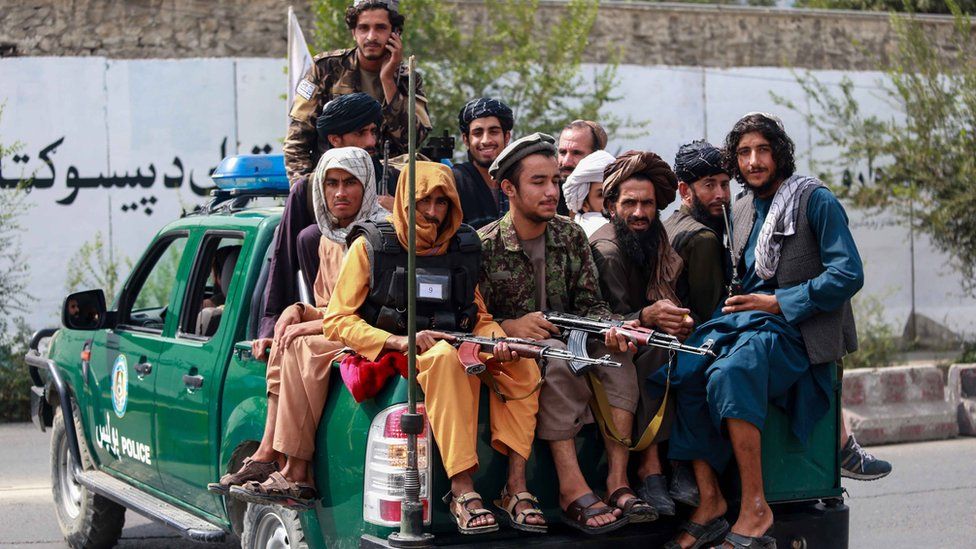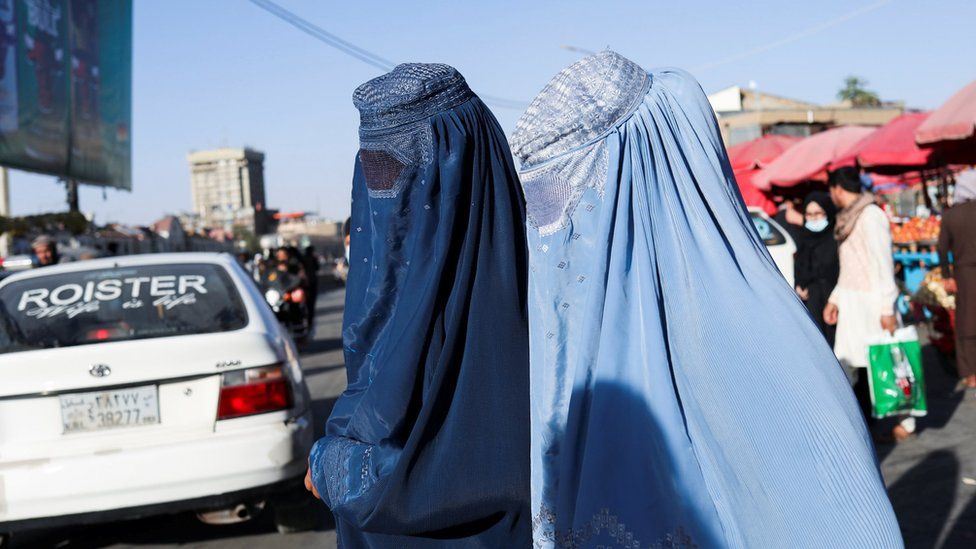아프카니스탄 '탈리반'정부 사형집행 부활 공표, 살육장이 되겠구만. 탈리반 운영세력들중의 한명인 Mullah Nooruddin Turabi가 어제 발표한 내용은 무시무시하다. "탈레반 법을 어긴자는 '두손을 잘라내는 형벌을 받아야한다''라는. 인간도축장이 되고있다는 뜻이다.
돌아가신 Reagan 대통령께서 하신말씀을 되새겨 보면서, 세상사에는 공짜가 없음을 재확인한다.
"자유는 공짜로 아무에게는 주어지는게 아니다. 이를 지킬만한 힘이 있을때에만 가능하다"라는.
아프카니스탄은 외세의 침략,즉 쏘연방의 10만 대군이 내려와 점령했었지만, 결국 패전하고 물러났었다. 그후에 아프카니스탄의 남부에 있던 탈리반, 즉 반군세력이 1990년대 중반 활동을 시작하여 아프칸 전체를 통치하는 세력이 됐었다고 하지만, 실질적으로는 옛날 토후들이 지역을 점령, 통치하는 지역주의 통치일뿐이었다.
탈리반은 여성을 아기낳은 기계정도로만 취급했을뿐, 인격체로 인정하지 않는 만행을 저질렀고, 자기네가 저지르는 범죄혐의자는 내편이고, 반대편에서 발생한 범죄 혐의자는 가차없이 처형하는 악마짖을 했었다.
아프카니스탄의 역사를 개략적으로 봤을때, 나라의 경제를 부흥시키고, 국방을 튼튼히 할려는 지도자는 없었고, 오직 뜻을 같이 하는 세력들만의 이익을 챙기기에 급급하여, 국민들의 힘을 한군데 모으는 지도자의 출현이 없어, 항상 가난하게 살고, 오직 세력을 잡은 부족은, 남부의 산악지대에서 대량으로 생산되는 Opium을 전세계의 암시장에 팔아 주머니를 챙길 생각만 했었고, 현재도 그생각은 변치 않고 있다.
미군이 진주하여, 아프카니스탄의 군사적, 경제적 자립을 도와줄려고 거의 20여년을 상주하면서, 반대세력들과 싸웠으나, 아프칸 민족성을 변화 시키질 못하고, 더이상은 도와줄 필요성을 느끼지 못하자, 현 민주당의 Biden정부가 철수를 하면서, 남아있던 탈리반 세력이 그자리를 차지하여, 지금 아프칸은 인간살육을 일삼는 도축장이 되어가는 느낌이다.
나무를 보지말고, 숲을 봐야하는 혜안을 갖인, 애국적 리더가 나와서 천하를 통일하고, 산업발전과 국방을 튼튼히 하기전에는 앞날의 크게 변화되지 않고, 옛날 이승만 초대 대통령께서 하신말씀 즉 "뭉치면 살고, 흩어지면 죽는다"라는 삶의 환경이 계속될것으로 추측된다.
아프칸사람들에게 '자유'를 누리게 할려는 미국의 노력을 아프칸들은 소화를 시키지 못하고 토해내는 바보짖을 했기에, 다시 삶의 지옥속으로 떨어지는 우를 범한 것이다. 그래서 다시 강조한다.
"자유는 공짜로 얻어지는게 아니고, 이를 지킬만한 힘이 있을때에만 가능하다"라는 교훈을.
우리 대한민국은 아프칸의 사태를 교훈삼아, 경제부흥과 국방태세를 완벽하게 갖추는데 게을리 해서는 절대 안된다. 정치적 싸움이나 상대방 헐뜯는 음모는 엄하게, 내편 네편을 가리지 말고 의법처단하여, 국민들이 맘놓고 생업에 종사할수 있도록 하는 진정한 리더를 선택해야 한다.
The Taliban's notorious former head of religious police has said extreme punishments such as executions and amputations will resume in Afghanistan.
Mullah Nooruddin Turabi, now in charge of prisons, told AP News amputations were "necessary for security".
He said these punishments may not be meted out in public, as they were under previous Taliban rule in the 1990s.
But he dismissed outrage over their past public executions: "No-one will tell us what our laws should be."
Since taking power in Afghanistan on 15 August the Taliban have been promising a milder form of rule than in their previous tenure.
But there have already been several reports of human rights abuses carried out across the country.
On Thursday, Human Rights Watch warned that the Taliban in Herat were "searching out high-profile women, denying women freedom of movement outside their homes [and] imposing compulsory dress codes".
And in August, Amnesty International said that Taliban fighters were behind the massacre of nine members of the persecuted Hazara minority.
Amnesty's Secretary-General Agnès Callamard said at the time that the "cold-blooded brutality" of the killings was "a reminder of the Taliban's past record, and a horrifying indicator of what Taliban rule may bring".
Days before the Taliban took control of Kabul, a Taliban judge in Balkh, Haji Badruddin, told the BBC's Secunder Kermani that he supported the group's harsh and literal interpretation of Islamic religious law.
"In our Sharia it's clear, for those who have sex and are unmarried, whether it's a girl or a boy, the punishment is 100 lashes in public," Badruddin said. "But for anyone who's married, they have to be stoned to death... For those who steal: if it's proved, then his hand should be cut off."
These hardline views are in tune with some ultra-conservative Afghans.
However, the group are now balancing this desire to appeal to their conservative base with a need to form connections with the international community - and since coming into power, the Taliban have tried to present a more restrained image of themselves.
- IN PICTURES: Ten days that shook Afghanistan
- EXPLAINER: Who's who in the Taliban leadership
- ANALYSIS: What has changed in Afghanistan in 20 years
Turabi, notorious for his harsh punishments for people caught listening to non-religious music or trimming their beards in the 1990s, told AP that although harsh forms of punishment would continue, the group would now allow televisions, mobile phones, photos and videos.
Turabi - who is on a UN sanctions list for his past actions - said the Taliban's cabinet ministers were now discussing whether or not punishments should be public, and that they would "develop a policy".
Back in the 1990s, executions were held in public in Kabul's sports stadium, or on the vast grounds of the Eid Gah mosque.
At the time Turabi was justice minister and head of the Ministry of Propagation of Virtue and Prevention of Vice - the Taliban's religious police.
"Everyone criticised us for the punishments in the stadium, but we have never said anything about their laws and punishments," he said in the latest interview.
Earlier this week, the Taliban also requested to speak at the UN General Assembly, which is being held in New York City.
German Foreign Minister Heiko Maas said that while it was important to communicate with the Taliban, "the UN General Assembly is not the appropriate venue for that".
The US, which sits on the credentialing committee, also said it would not make a decision before the end of the summit next week.
https://www.cp24.com/world/taliban-hang-body-in-public-signal-return-to-past-tactics-1.5600348
https://www.washingtonpost.com/world/2021/09/24/afghanistan-taliban-amputations-executions-return/



No comments:
Post a Comment